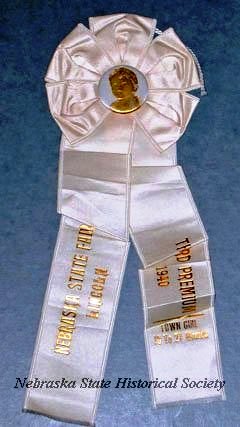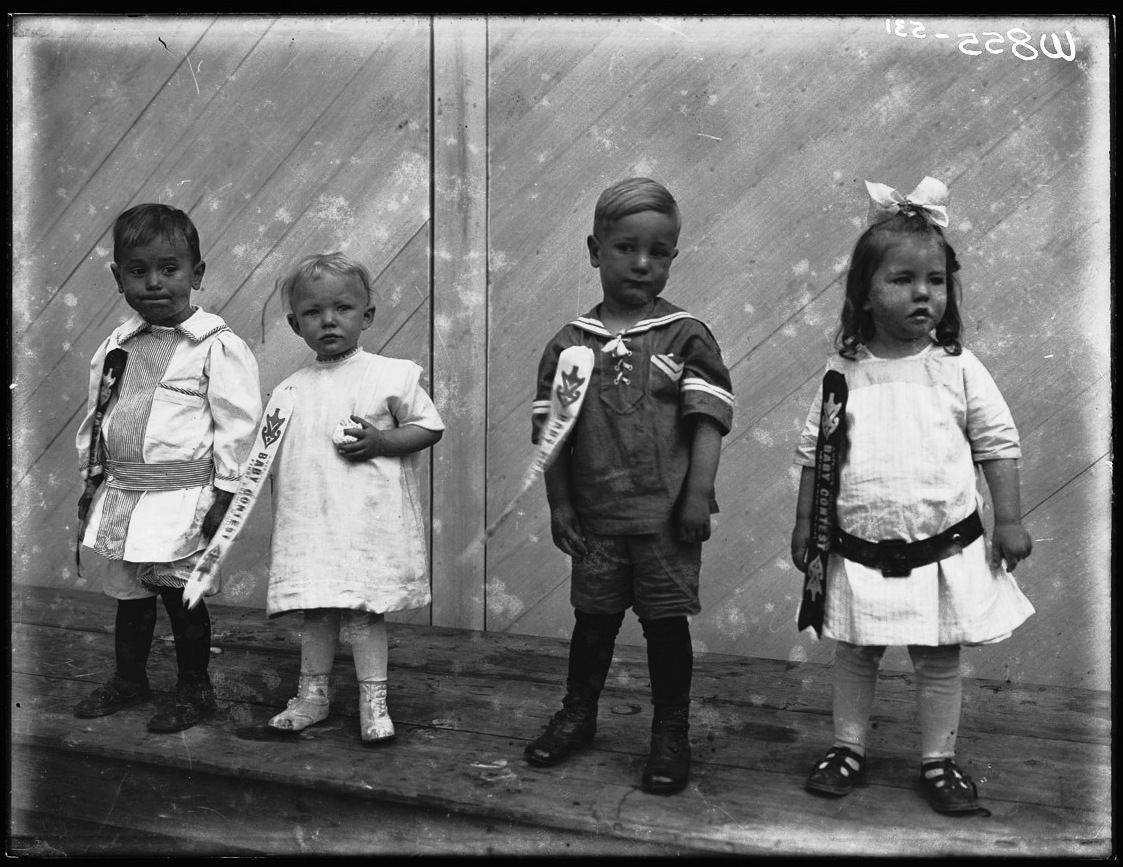 Third premium ribbon from a Better Babies contest at the 1940 Nebraska State Fair. NSHS 13161-9
Third premium ribbon from a Better Babies contest at the 1940 Nebraska State Fair. NSHS 13161-9
“If better live stock, why not better babies?” asked a member of the Grange in the pages of Philadelphia’s Farm Journal in December of 1913. It was a natural question reflecting growing interest after 1900 in child development and concern over high infant mortality in the United States. Baby shows, long a staple of state and local fairs and church festivals, became contests to select “Better Babies,” in which young children were examined for physical and mental development and scored for points according to standards of weights and measurements, very much as livestock at agricultural fairs was scored.
The Nebraska State Fair in 1914 hosted a Better Babies contest in which “champion babies” were selected to receive prizes on the basis of points awarded under such a scoring system. According to the Red Cloud Chief, Arthur Van Gorden of Gresham, aged twenty-three months, was declared “a perfect baby, according to the decision of the committee on awards at the Better Baby show at the state fair. . . After the decision of the judges the baby was re-examined by the doctors, but not a blemish nor a defect could be found, although a scientific examination, including over 100 points was made. He was given a gold medal and $25.”
Other prize winners included Howard Richard Kidney, aged twenty-four months, of rural Lincoln, declared the champion rural boy, and Dorothy Grace Field of rural Lincoln, aged twenty-one months, the champion rural girl. “Denice Green of Elmwood was compelled to divide her prize of $25 with another baby, both of them scoring 99.5 per cent. The little lady is 21 months old. . . . May Beth Ryerson, who tied for the city baby championship, . . . was given a bronze medal and half of a $25 prize.”

Photographer Emanuel Wolfe depicted several finalists in a baby contest, many of which included toddlers. Each wears a prize ribbon. NSHS RG2836.PH0-532
Such contests, popular for a time with parents and the public, tended to foster eugenic ideas, which tried to “improve” genetic features of the human population through selective mating and sterilization, ideas which have since fallen into disfavor.
. – Patricia C. Gaster, (former) Assistant Editor/Publications
(Updated 8/25/2023)



